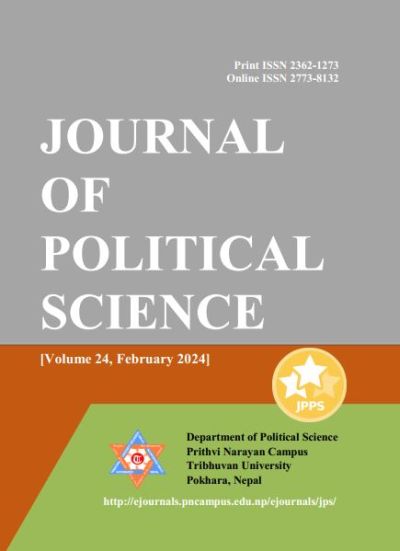Shifting Trends in Regionalism
DOI:
https://doi.org/10.3126/jps.v24i1.62862Keywords:
Globalization, power shift, multi-polarism, new regionalism, regional securityAbstract
Regionalism is a movement that emerged after World War II. It involves countries that are geographically close and interdependent, collaborating with the help of governments and NGOs to achieve mutual benefits in a particular area of shared interest. Such regional clusters have evolved due to geographical proximity, economic interdependence, security issues, social and cultural background, and more. The end of the Cold War led to the rise of new regionalism shaped by factors such as globalization, the emergence of new players, shifts in global power dynamics, increased interdependence, alterations in security paradigms, the advent of multipolar, and various other influences. This shifting pattern has had a major impact on world politics and power dynamics. Traditional notions of security are evolving to encompass human security concerns, while economic collaboration and identity-based regionalism are gaining prominence. Asia's growing economic clout, new regional players' arrival, and smaller states' growing role are reshaping the global power landscape. Asymmetric positions and chequered history hinder the functioning of regionalism. In this context, the article seeks to analyze the changing dynamics of regionalism, the primary drivers of this shift, and its implications for global power dynamics. The article is presented from the perspectives of neo-realism, neo-liberalism, and constructivism in a descriptive, analytical, and exploratory format, where the necessary information is obtained from secondary qualitative data.
Downloads
Downloads
Published
How to Cite
Issue
Section
License

This work is licensed under a Creative Commons Attribution-ShareAlike 4.0 International License.




